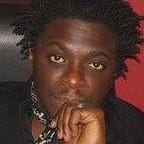 Boredom// n. An un-relieved sense of disinterest. An emotional state experienced when an individual is left without anything in particular to do, and not interested in their surroundings.
Boredom// n. An un-relieved sense of disinterest. An emotional state experienced when an individual is left without anything in particular to do, and not interested in their surroundings.
The year was 1978. I was a 5th grader at Oscar DePriest Elementary School on Chicago’s West Side. My teacher was Mr. Green, a portly man with glasses, graying hair, and a nature I now understand as mildly acerbic. Because of his tendency to be exacting with his pupils, when he was out of earshot we referred to him as Mr. Mean, Mr. Mean Greens, or some variation thereof.
One late spring day, Mr. Green was to teach us about our solar system. He reached above the green chalkboard and pulled down a rolled up map depicting our sun orbited by — at that time — nine planets. Mr. Green wanted to show the class the path taken by the then recently launched Voyager 1 space probe as it shot past Mars and spiraled through cosmic silence toward the gas giants, Jupiter and Saturn. He was excited that this little piece of human technology, hundreds of millions of miles from Earth, would eventually leave our solar system. And, in the event that some alien intelligence should happen upon it, they would come across a golden album with songs, greetings, and a map of where to find us. But if otherwise unimpeded, Voyager 1 would continue into interstellar space. Into the vast blackness.
Being a 10-year-old boy, I was very intimate with a vast blackness. It was in my head whenever I was in class.
As Mr. Green spoke, my mind’s vast blackness caused me to hunch forward, upper torso curving over the edge of the wooden desk, cheeks nesting in the “U” of my hands, pinky fingers resting in the space between my nose-bridge and drooping-eye. And that’s when I said it. Said the skip-stuck-broken-LP phrase that played and repeated on the phonograph that was my brain: “Ugh, I’m bored!” That fateful utterance winded its way out from that vast blackness, left my tween-smirked mouth, and entered the atmosphere of the classroom.
This changed everything.
Mr. Green turned quickly from the map. Adjusted his glasses. Slowly smiled. The man did not smile. Ever. This was the moment I received what I now call The Mr. Green Speech. It goes as follows:
“Excuse me, Mister Gibson. Did you say you are… BORED? Well, Mister Gibson, please allow me to be the first to shake your hand and congratulate you. It seems, Mister Gibson, that you have somehow managed to become the first human being to a accomplish a task that, up until this very moment, I had believed no other human being capable of coming close to. You, Mister Gibson, have exhausted this world of ALL its possibilities! And at such a young age. My, how precocious you are, Mister Gibson.
“Mister Gibson, I am sure you already know what I am about to say, but if you can somehow find it in yourself to indulge me, I will simply remind you that when you are bored, you are also boring. Mister Gibson, this world is full of wonders and treasures waiting to be discovered and does not exist for your singular entertainment. So, you must forgive this world for refusing to reduce itself to some birthday party clown whose job is to don a funny hat, big shoes, a red nose and juggle hoping to get a bit of laughter from petulant children. Mister Gibson, do not make yourself into a shapeless sponge waiting for the world to wet you. You must evolve and go toward the waters yourself, Mister Gibson. For to not do so is a crime against human intelligence.
“Mister Gibson, not that you need to, but if you should choose to continue into higher education — oh, let’s say, into the 6th grade or high-school or dare I hope beyond — you might discover a curious fact: The most interesting people you will ever meet are also the most interested.”
I felt myself shrinking. With each imperiously precise word, Mr. Green extracted both my air and water until all that remained was a hominid form of protoplasm desperately in need of hydration, oxygenation, and a place to hide from the pitying gazes of my classmates.
I was embarrassed.
Shaking-hand-tightened-sphincter embarrassed.
Was-never-going-to-slouch-in-class-or-say-that-word-
as-long-as-I-am-in-your-presence-Mr. Green embarrassed!
In an effort to avoid future humiliations, everything about me in class changed. I stopped slouching at my desk and began sitting up — lest I appear as though not listening. Then, I began listening — lest I should be called upon to comment, had no comment, and have it thought I was only pretending to be listening. Then, I started asking questions and, as if by magic, I became interested in what was being taught! And, then, the epiphany:
No subject is, in and of itself, boring.
For me, learning became a matter of my curiosity, and being bored or interested was my choice. I could choose to be a proactive agent in my own education and self-becoming — or choose to remain that hapless heap of hominid protoplasm waiting to react to external stimuli. I found that if I looked deeper into any subject with an active, attentive, and questioning mind, I could always find something of interest.
In that public dressing down, Mr. Green had given me a gift: the gift of never having to succumb to boredom.
At some point, each of my four biological children — along with a few hundred other kids I have taught, mentored, picked up, taken to sports practice, or seen around my home as invited guests of countless playdates — has gotten the Mr. Green Speech.
And I will continue to gift it forward until every kid I come across understands that the word bored is to be stricken from his or her vocabulary as if it were an expletive or racial epithet.
Yes, there are times when my children and students are feeling blasé, unexcited, or unenthusiastic. They are allowed to express this condition in my presence, as long as two criteria are met. First, no word used to express said condition can be any derivative of “bored.” Second, each expression of said condition must be followed with a reason…
“Mr. Gibson, I am disinterested today, because…” or, “Mr. Gibson, I am inattentive today, because….” Or, if they’ve been reading Albert Camus, they may take delight in uttering, “Mr. Gibson, today I find myself beset upon by an inescapable, existential ennui, because…”.
From years of dealing with young people, I have found both making them choose words other than the go-to’s of “boring” or “bored,” and making them explain why they presently experience the emotion they designate as such, will often demand a reconsideration of their disposition and become its own remedy.
However, “Ugh, I’m bored!” will garner from me, a quick turn-around. A slow smile. And an imperiously precise, “Excuse me. Did you say you were… BORED?”
Regie Gibson is a poet, songwriter, author, workshop facilitator, educator, and winner of the 1998 National Slam Competition.
